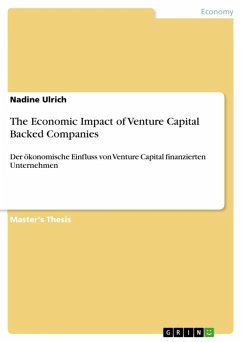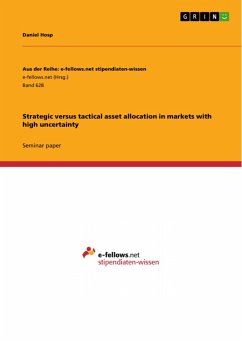In my thesis I examined the applicability of traditional valuation methods to value high growth companies. Consequently I presented and discussed possible modifications to the traditional methods, whereas I demonstratively applied some of the presented concepts in the case study. Considering relative valuation, traditional multiples based on historical financial data are not very useful for valuing such companies, as historical earnings are either negative or have low informational value. In my opinion, the presented concept of forward-looking (earnings) multiples is clearly superior to the traditional approaches using historical financials and also to the proposed modifications, which mostly have to be applied using historical data. The concept of knowledge-related multiples is interesting, although it uses historical financials; it may be useful and deliver accurate results in certain cases, but not especially when valuing high growth companies. Multiples based on non-financial data may only work well if a truly comparable company could be found. However, a multiples analysis should generally not be used for standalone company valuations, but rather to complement a DCF valuation, which is regarded as the more accurate method. In the second part I examined the DCF valuation and found that the general framework works even for high growth firms; only the estimation of separate inputs requires more effort and modified estimation approaches compared to stable growth companies. The scenario-based DCF approach is considered as the appropriate method to account for high uncertainty in company valuation, as it allows examining the effect of changes in fundamental value drivers, without having to use quite intransparent mathematical models. I also presented some in depth estimation issues for three main steps of a DCF valuation, which proved beneficial for doing the case study. The case study should demonstrate the specific problems relating to the valuation of high growth companies. By trying to value "bwin", an Austrian online gaming firm, the case study reveals the deficiencies of traditional multiples and shows how the scenario-based DCF approach can be applied. Although scenario outcomes deliver an even broader value range than the multiples analysis, they allow accounting for the specific circumstances and reveal the possible effect of changes in the key value drivers for the company. The scenario-based DCF approach thus delivers the most valuable results in my opinion.
Dieser Download kann aus rechtlichen Gründen nur mit Rechnungsadresse in A, B, BG, CY, CZ, D, DK, EW, E, FIN, F, GR, HR, H, IRL, I, LT, L, LR, M, NL, PL, P, R, S, SLO, SK ausgeliefert werden.









